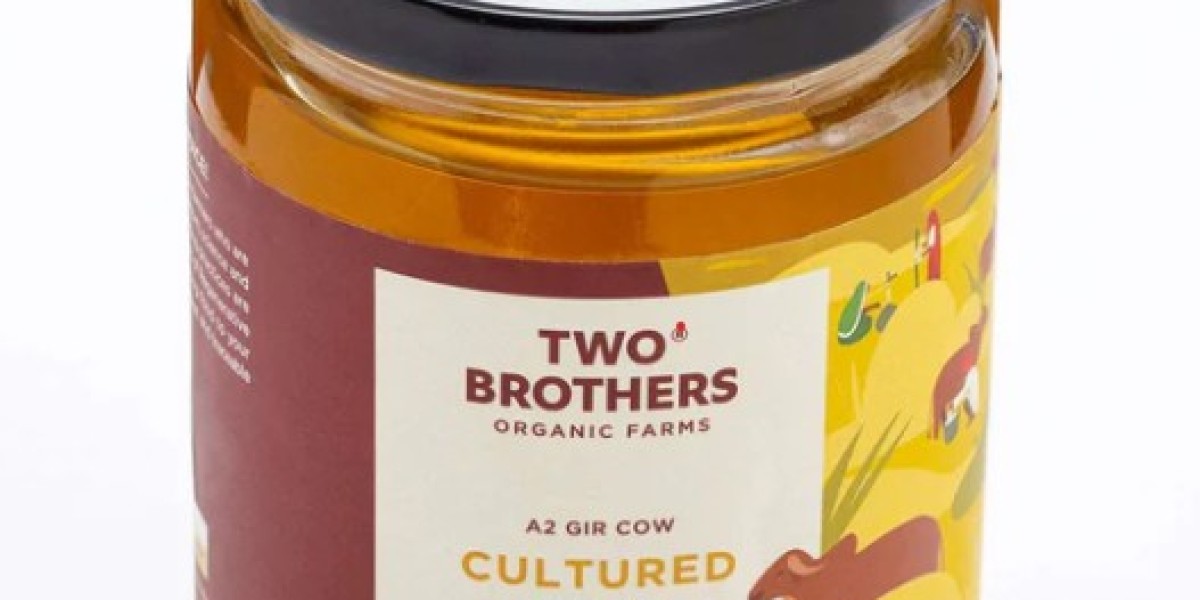Introduction:
Ghee, often referred to as clarified butter, holds a special place in the hearts and kitchens of many cultures around the world. With its rich, nutty flavor and versatility in cooking, ghee has become a beloved ingredient cherished for its culinary and health benefits. In this comprehensive guide, we delve into the world of ghee, exploring its origins, nutritional properties, culinary uses, and the timeless allure behind this golden elixir.
The Essence of Ghee:
Exploring the Origins of Ghee
Ghee has a long and illustrious history that spans centuries and continents. Its origins can be traced back to ancient India, where it was revered as a symbol of purity, nourishment, and prosperity. Made by simmering butter until the milk solids separate and are removed, ghee has been used in traditional Ayurvedic medicine for its therapeutic properties and is an integral part of religious rituals and festivities.
Crafting the Perfect Ghee
The process of making ghee is an art form that requires patience, skill, and attention to detail. It begins with high-quality butter, preferably from grass-fed cows, which is slowly heated until it melts and the water content evaporates. As the butter simmers, the milk solids begin to separate and sink to the bottom, leaving behind a clear, golden liquid. Once the ghee is strained and cooled, it solidifies into a creamy, aromatic substance that is prized for its rich flavor and nutritional benefits.
Nutritional Benefits of Ghee:
A Nutrient-Rich Superfood
Despite its reputation as a high-fat food, ghee is surprisingly nutritious and packed with essential vitamins, minerals, and fatty acids. It is rich in fat-soluble vitamins such as A, D, E, and K, which play crucial roles in immune function, bone health, and cardiovascular health. Additionally, ghee contains conjugated linoleic acid (CLA), a type of fatty acid with anti-inflammatory and antioxidant properties that may help reduce the risk of chronic diseases.
Supporting Digestive Health
In Ayurveda, ghee is revered for its ability to balance the doshas, or bodily energies, particularly Pitta and Vata. Its cooling and grounding properties help soothe inflammation, improve digestion, and promote the absorption of nutrients. Ghee is also believed to lubricate the gastrointestinal tract, ease constipation, and support overall gut health, making it a valuable addition to a balanced diet.
Culinary Uses of Ghee:
Enhancing Flavor and Texture
One of the most remarkable qualities of ghee is its ability to enhance the flavor and texture of dishes without overpowering them. Its high smoke point and stable molecular structure make it ideal for frying, sautéing, and deep-frying, as it imparts a rich, buttery flavor and golden hue to foods. Ghee is also used in baking, where it adds moisture, tenderness, and a subtle nuttiness to bread, pastries, and desserts.
Versatility in Cooking
From savory curries and stir-fries to decadent desserts and pastries, ghee is a versatile ingredient that can elevate a wide range of dishes. Its ability to complement both sweet and savory flavors makes it a staple in cuisines around the world, from Indian and Middle Eastern to French and American. Whether drizzled over popcorn, melted into mashed potatoes, or used to fry eggs, ghee adds a depth of flavor and richness that is unmatched by other cooking fats.
Exploring Ghee Varieties:
Diverse Flavors and Aromas
While traditional cow ghee remains the most popular variety, ghee can also be made from other sources such as buffalo milk, goat milk, or even plant-based fats like coconut or avocado. Each variety of ghee offers its own unique flavor profile, aroma, and nutritional benefits, catering to diverse dietary preferences and culinary traditions. Exploring these diverse ghee varieties allows one to experience the rich tapestry of flavors and aromas that ghee has to offer.
Conclusion:
In conclusion, ghee stands as a symbol of tradition, nourishment, and culinary excellence that transcends cultural boundaries and culinary trends. Its rich flavor, nutritional benefits, and versatility in cooking make it a cherished ingredient in kitchens around the world. As we celebrate the richness of ghee, let us honor the ancient traditions that have bestowed upon us this golden elixir of health and flavor.
FAQs:
Q1: Is ghee suitable for lactose-intolerant individuals?
A1: Yes, ghee is generally well-tolerated by individuals with lactose intolerance as the clarification process removes milk solids, including lactose.
Q2: What is the shelf life of ghee?
A2: Due to its low moisture content and stable molecular structure, ghee has a long shelf life and can be stored at room temperature for several months without refrigeration. Proper storage in an airtight container away from sunlight and moisture helps preserve its freshness and flavor.
Q3: Can ghee be used as a vegan alternative to butter?
A3: No, ghee is derived from butter, which is a dairy product, and therefore is not suitable for a vegan diet. However, there are plant-based alternatives such as coconut oil or vegan butter that can be used as substitutes in vegan recipes.








